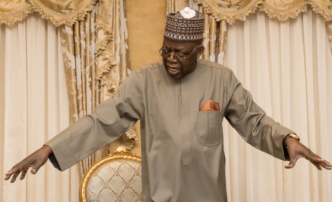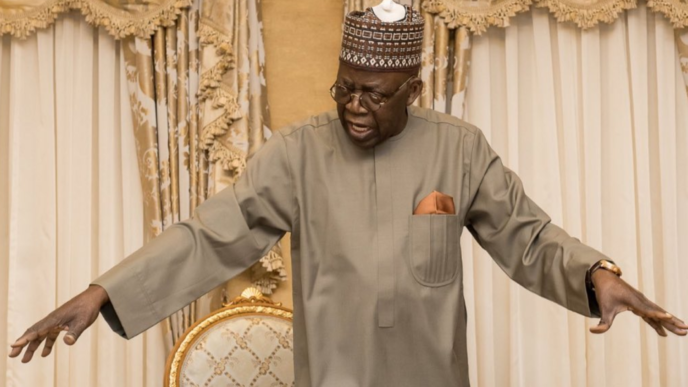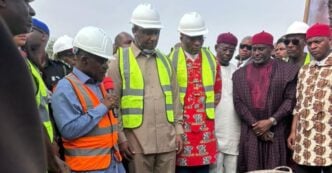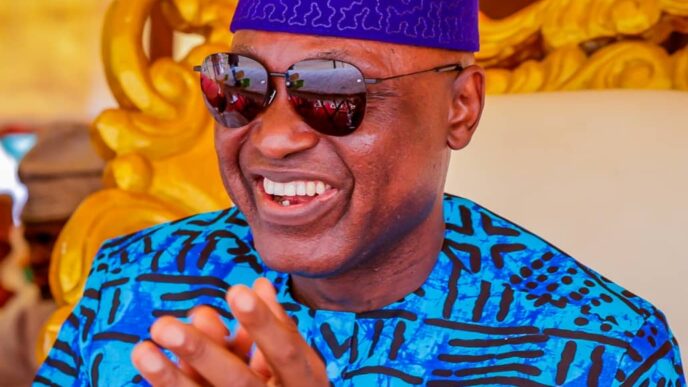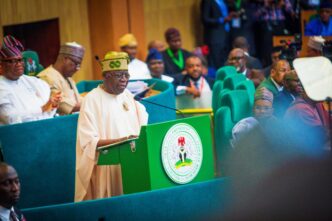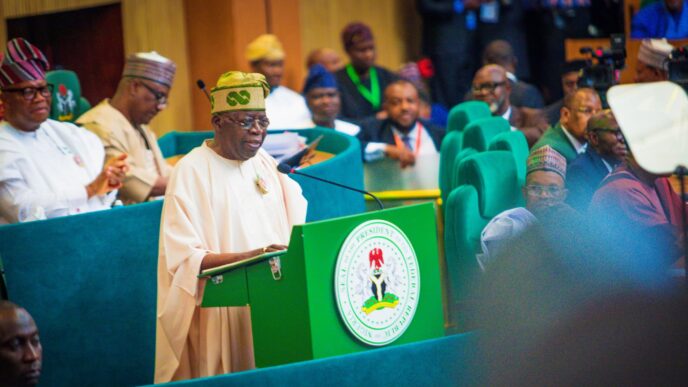BY OLU ALLEN
In a country where millions struggle to afford basic necessities, President Bola Ahmed Tinubu’s $1 trillion economy dream sounds like the rallying cry we need. But is it a practical plan to rescue our battered economy—or just another political mirage designed to distract from harsher realities?
To truly grasp the weight of this promise, let’s unpack the numbers. Nigeria’s gross domestic product (GDP), according to the International Monetary Fund (IMF), is currently about $200 billion. Reaching $1 trillion by 2030 means adding $800 billion in just five years. That requires an annual growth of $160 billion—or an 80 percent yearly expansion.
For perspective, even the world’s most dynamic economies struggle to sustain double-digit growth over time. China, during its economic boom, averaged around 10% annual GDP growth for decades. Is Nigeria achieving 80 percent growth annually? That’s not just ambitious—it’s bordering on delusional.
Advertisement
After rebasing in 2014, Nigeria’s GDP hit $568 billion. Fast forward a decade, and our economy has shrunk to around $200 billion, reflecting years of missed opportunities, poor leadership, and systemic decline. Even if Nigeria rebases again in 2026, potentially doubling the GDP, we would still fall short of our 2014 peak. Tinubu’s promise of a $1 trillion economy, then, doesn’t just stretch the imagination—it outright defies economic logic.
For Tinubu’s $1 trillion dream to even appear realistic, we must confront the structural challenges suffocating Nigeria’s economy:
1. Overreliance on oil: Oil may account for a fraction of GDP, but it remains the backbone of government revenue and foreign exchange earnings. As the global shift to renewable energy accelerates, Nigeria faces dwindling demand for fossil fuels. What industries will fill this gaping hole?
Advertisement
2. Inflation and currency instability: With inflation skyrocketing and the naira in free fall, macroeconomic stability is a pipe dream. How do we attract investors when businesses cannot predict the value of their earnings tomorrow?
3. Crippling infrastructure deficit: From erratic power supply to congested ports, the nation’s infrastructure is a massive bottleneck. Without reliable infrastructure, industrial growth and job creation remain elusive.
4. Unemployment crisis: Over 40 percent of Nigerians are unemployed or underemployed. A low-productivity informal sector dominates the economy, offering little to drive sustained growth.
5. Hostile business climate: Corruption, insecurity, and bureaucratic red tape repel investors. Nigeria’s low ranking on ease-of-doing-business indices paints a grim picture of what entrepreneurs face.
Advertisement
Rebasing is often touted as a shortcut to inflate GDP figures by capturing previously excluded sectors. While it may improve numbers on paper, it doesn’t generate real wealth, jobs, or industrial growth. Even if rebasing doubles GDP by 2026, Nigeria would still struggle to climb back to its 2014 high, let alone
achieve $1 trillion by 2030.
In times like these, leadership isn’t about making lofty proclamations. It’s about setting achievable goals and delivering on them. Tinubu’s $1 trillion dream risks becoming another in a long line of broken promises—a distraction from the unglamorous but necessary work needed to fix the economy.
Ambitious goals can galvanise action, but ambition must be tempered by realism and guided by clear, actionable strategies. Rather than chasing pie-in-the-sky targets, the administration should focus on the fundamentals:
- Fixing the power sector to unlock industrial growth.
- Simplifying the tax system to encourage businesses.
- Tackling corruption and insecurity to attract investors.
- Investing in education and healthcare to build human capital.
The promise of a $1 trillion economy may capture headlines, but it does little to address the lived realities of Nigerians struggling to make ends meet. What we need is not grand rhetoric but pragmatic policies and decisive action.
Advertisement
Nigeria’s economic recovery will be a marathon, not a sprint. Tinubu’s administration has the opportunity to rewrite the narrative—but only if it chooses substance over spectacle. Nigerians deserve leaders who inspire hope grounded in reality, not illusions.
The time for gimmicks is over. It’s time to face the hard truths and do the hard work.
Advertisement
Olu Allen can be contacted via [email protected]
Advertisement
Views expressed by contributors are strictly personal and not of TheCable.
Add a comment

